Used as human shields, starved and under fire: The horrors people with disabilities face in Putin’s war
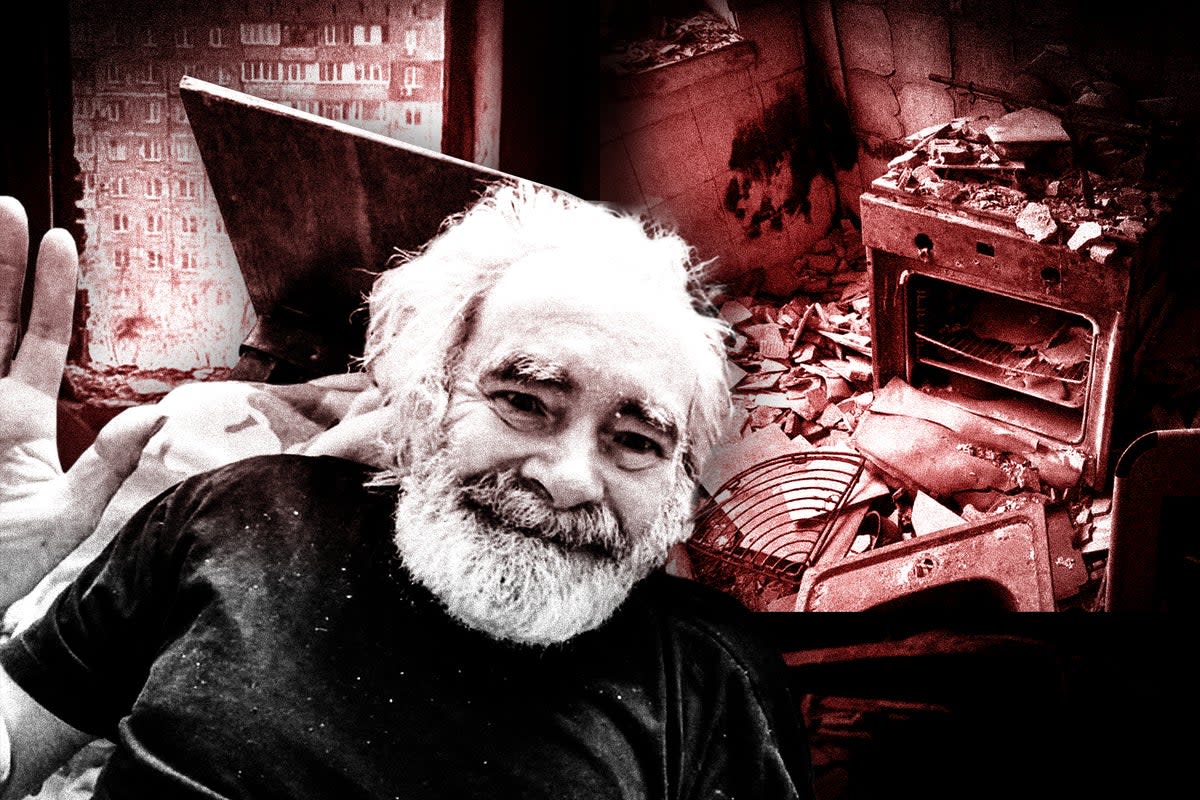
- Oops!Something went wrong.Please try again later.
Almost completely paralysed, Oleg could do nothing but sit under the bombing in his own excrement, after his caregiver mother was killed in front of his eyes by a missile attack.
At some point during the three weeks he was stranded alone, Russian soldiers came into the building and stole the wheelchair the 65-year-old Ukrainian was sitting in. They told him they needed it for a wounded soldier, and left.
This was early spring 2022 on the eastern side of Mariupol, a strategic Ukrainian port city that was under one of the fiercest bombardments of Russia’s invasion. There was no electricity, water or phone connection. Temperatures had dropped to minus 10 degrees celsius.
Due to multiple strokes in the past, Oleg had lost the use of all his limbs bar his right arm and needed around-the-clock care. His mother had been looking after him until she was killed in a Russian strike which swallowed half their apartment block and nearly burned Oleg alive. A neighbour rescued him from the fire and took him to the ground floor entrance of an adjacent building. There others risked being killed by shelling to intermittently bring him food.
“I don’t know how he managed to survive with the use of only one arm,” his only daughter Yanina, 25, tells The Independent, with incredulity in her voice. The technology worker was in Kyiv when Russia invaded and spent months desperately searching for her father in the south.
“After the soldiers took his wheelchair, he lay on a dirty mattress half naked, having to go to the toilet on himself for almost a month. He couldn’t escape, get to safety.”
After Russia took full control of the scorched city, Oleg was taken by Russian soldiers and their Ukrainian proxies to an institution in the occupied town of Makiivka in Donbas in eastern Ukraine, an area made up of the regions of Donetsk and Luhansk. There he described appalling treatment. Parts of his foot were amputated because of frostbite.
“There was barely anything human about them,” he told The Independent about the Makiivka authorities that also tried to force Russian documentation on him.
The only thing that kept him going was his daughter, who eventually located him and worked on his rescue.
“I thought about what a daughter I have, that she saved me,” he added.
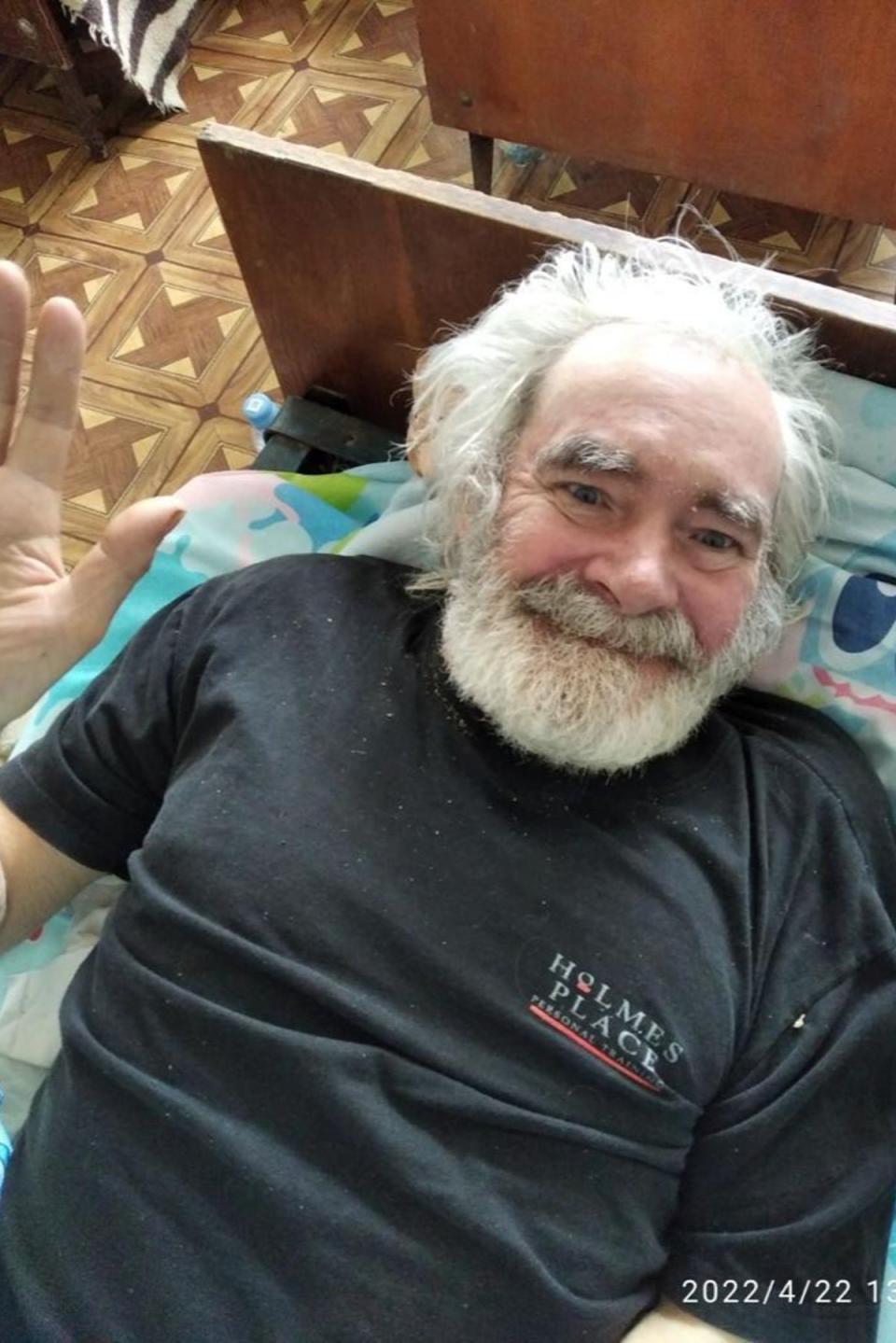
Oleg is among tens of thousands of people with disabilities in Ukraine who found themselves trapped along the deadliest frontline of one of Europe’s bloodiest wars in generations. Often unable to seek shelter, evacuate or look for food or water, by themselves Ukrainians with disabilities have been “disproportionately” impacted by Vladimir Putin’s invasion and are suffering the brunt of the horrors of the war, according to the United Nations.
It took Yanina five difficult months to successfully bring Oleg back to Ukrainian-controlled territory and be reunited again in the capital.
“The authorities in Makiivka were very aggressive when I tried to get him out. It was like bailing my dad out of a prison,” she adds.
But in August 2023, exactly a year after his rescue, he died suddenly. His family thinks those weeks in Mariupol and the treatment in Makiivka, took a deadly toll on his body.
Others who have been through similar ordeals also did not survive. Yanina was trying to help a different man with disabilities called Igor, who was also from Mariupol and in the same hospital room as Oleg. He died mid evacuation, en route to the central city of Zaporizhzhia.
The Independent has exposed the terrible suffering people with disabilities have faced in Putin’s invasion and uncovered fresh evidence of possible war crimes committed against them including forcible transfer, deportation, and abusive treatment that could amount to torture. The Independent has also received reports they had been used as human shields by Russian soldiers, and deprived of food and medicine resulting in death.
This 18-month has highlighted Ukraine’s outdated care system that was inherited from the Soviet Union and relied on systematic institutionalisation of people with disabilities, often from childhood.
Ukraine had started the process of reforms before the war started to build a “barrier free” country for all that was backed by First Lady Olena Zelenska.
But that was stopped short by the war. And ultimately on 24 February 2022, when Moscow’s men marched on Kyiv, tens of thousands of Ukrainians with disabilities were still living in hundreds of residential institutions across the Ukraine. There, conditions have been described by United Nations experts and a recent European Union commission report as “appalling”.
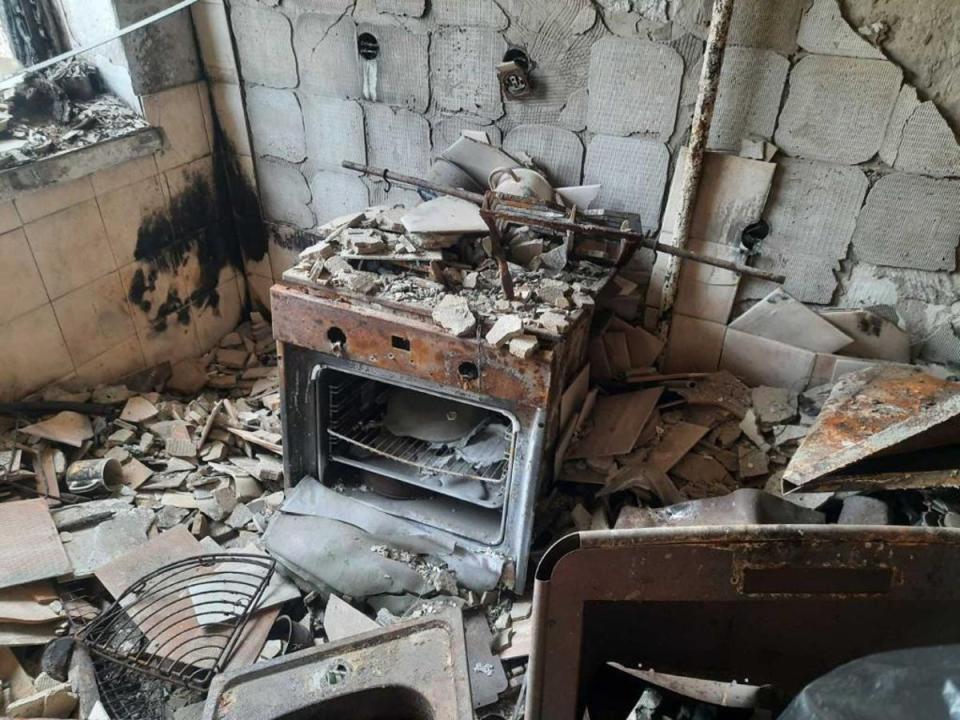
This led to a “crisis within a crisis” for people with disabilities, says Elham Youssefian from the International Disability Alliance - a group of 14 global and regional organisations that have released a long report about Ukraine.
“Because of all the barriers that existed before the war, it put people with disabilities at highest risk, and doubled the situation,” she tells The Independent.
“It is a crisis in crisis. People with disabilities were among the first to be forgotten and last to be cared about”.
Dr Gerard Quinn, who was the UN’s special rapporteur for the rights of people with disabilities until recently, said those in institutions in particular - itself a crime- were “particularly easy targets”.
“You have highly vulnerable people, who were congregated in concentrated settings, who do not have a natural constituency to raise an outcry,” he says.
The Independent has repeatedly reached out to the Ukrainian authorities for comment on the numbers of people with disabilities and the numbers in institutions, and the lack of evacuation plans, over the last 18 months but has yet to receive a reply.
Dymotro Lubinets, Ukraine’s Commissioner for Human Rights, told The Independent that officially they had no idea how many Ukrainians with disabilities have been taken to Russia but unofficially the numbers are in the “high thousands”. He claimed his office had repeatedly appealed to Russia, the United Nations and interactions organisations for information but had been stonewalled.
“I specifically asked where the people were who were in special institutions for those with disabilities in Mariupol. We know they were all transported away but we do not know where,” he added.
***
Through a green door scrawled with the words “children”, and down some stairs is the suffocating basement where hundreds of villagers were held as human shields by the Russians for four weeks.
In early March 2022, soldiers seized control of Yahidne, a village in Chernihiv oblast around 110 miles (180km) north of Kyiv. They rounded up more than 350 inhabitants, including dozens of children, and at gunpoint marched into the room underneath the local school that they had turned into a military base. The soldiers kept them there as protection from Ukrainian incoming fire.
Among the group were five people with disabilities, according to United Nations experts who have documented the incident.
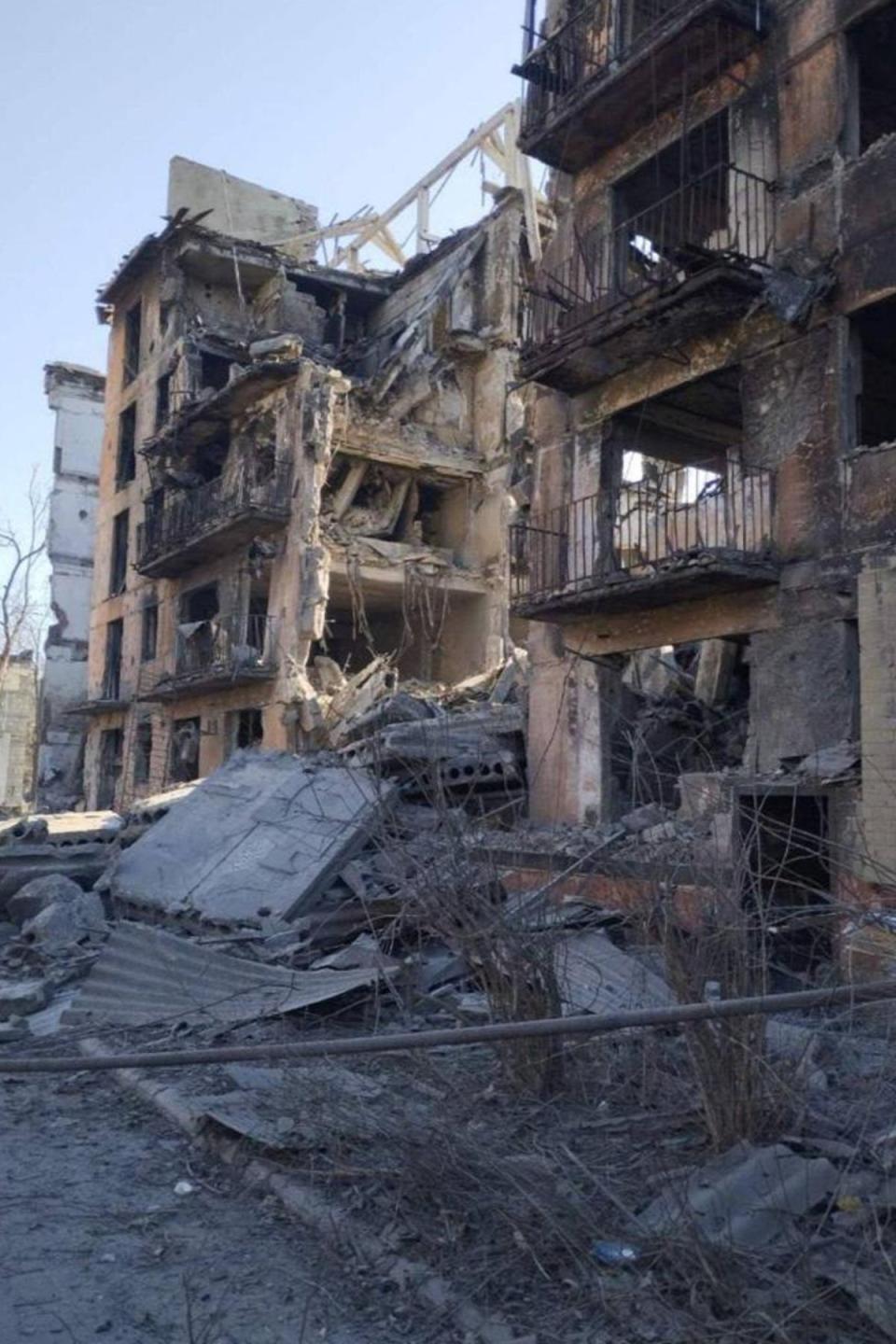
For a month they were held there – in the near total darkness – without enough air and no room to move. Only small groups were permitted above ground to fetch food and water or to use the toilet.
At least 10 people died from the lack of ventilation and disease, their bodies were kept in a separate room. Local inhabitants said people went crazy. A list of the dead is still scratched on the wall.
Jonas Ruskus, the former vice chair of the UN’s Committee on the Rights of Persons with Disabilities, said it was particularly distressing for those with disabilities, saying they were “cruel, inhumane and degrading treatment,” while stuck in this basement.
This is apparently not an isolated incident. Further west in the region of Kyiv, were also harrowing reports of abuse.
“In a residential care institution in Borodyanka twelve residents with intellectual and psychosocial disabilities died due to lack of access to medications and food,” Ruškus added.
At the start of the invasion, residents of the once quiet satellite town said that this facility was besieged by Russian soldiers. With no way of evacuating, no access to food, electricity and water supplies, a dozen patients died.
Russian soldiers then stationed themselves around the facility and heavily mined the area. At the time the regional administration of Kyiv reported that some Russian units were even firing from within the compound.
“They were using us exclusively as a live shield,” Maryna Hanitska, the head of the institution, told The Washington Post after Russian forces had withdrawn.
The Independent was told of similar reports of people dying of hunger and cold in institutions for people with disabilities in Strilecha – a town 460km to the east along the border of Russia – which was also occupied for several weeks. It has since been liberated by Ukrainian forces. But in September 2022 Ukrainian officials reported that four medics were killed and two patients injured when the Russian shelled an evacuation of a psychiatric facility there. Russia denies committing any crimes in Ukraine.
***
The war has cast a grim spotlight on Ukraine’s historic reliance on institutionalisation, a situation which action rights groups and international law experts says violates their right to independent living and has compounded the devastating and deadly impact of the war and occupation. A European Union Commission report urged Ukraine to immediately end the practice of institutionalisation and ensure everyone from those with disabilities to the elderly, can exercise their right to live in the community.
One of the main issues was an apparent lack of evacuation plans in place when Russian tanks rolled through Ukrainian territory, according to Iryna Fedorovych from Fight for Right a Ukrainian disabilities rights group and research centre.
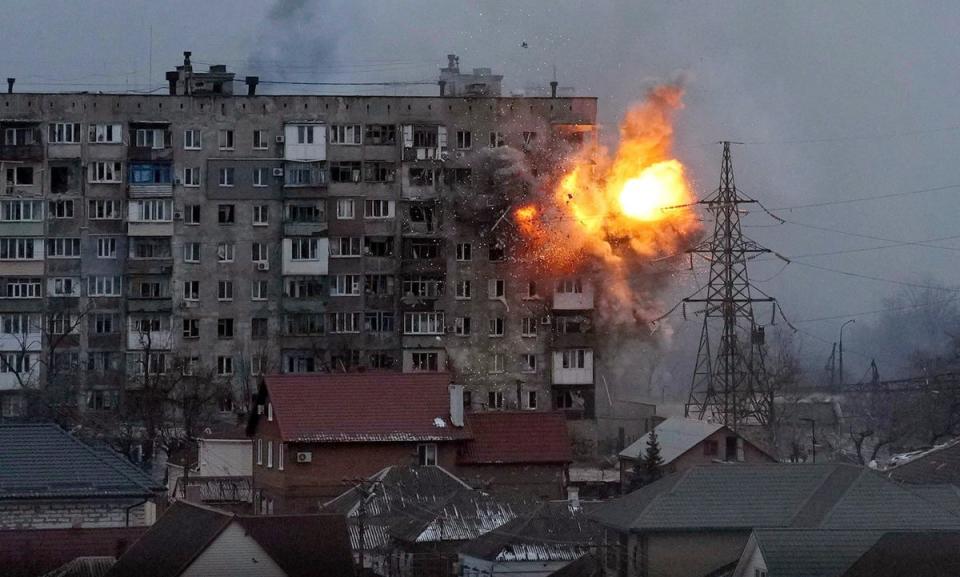
Fedorovych tells The Independent they found that only 46 institutions across the country evacuated when Russia invaded, out of an estimated total of 260 (there is no publicly-available confirmed data on the total numbers of facilities in the country). This is despite the ministry of social policy saying before the war that they had security and evacuation plans in place.
According to Fight for Right’s latest report, there are more than 4,000 people with disabilities in institutions that are now under Russian control and more than 8000 living in areas which are under heavy artillery fire.
“We are worried that even after the war people with disabilities might be left behind again because they are never considered the most important,” she ays.
Olena Prashko - a rights advocate who is working with Ukraine’s ministry of health on reforms said many places had no time and were too ill equipped to move people.
She fears for the future as the “war has set back the programme of reform several years”.
“The aim is to make sure people can live independently, to reintegrate them into the society, so this doesn’t happen, ” she says.
“We are hoping that after the war all the partners western partners who are supporting Ukraine will also support us on this issue and help us achieve our goals faster.”
***
This change will be urgently needed as Ukraine contends with a new generation of people with disabilities.
According to unofficial statistics there are as many as 20,000 new amputees in the country because of this bloody artillery war. That number will only rise as Ukraine is now among the most heavily mined countries in the world.
Backed by Ukraine’s first lady - Ukraine is building a slew of new cutting edge prosthetics centres to help people adjust to life-altering injuries. The authorities have promised to avoid rebuilding the institutions destroyed in the war but instead work towards reintegration into a truly accessible Ukraine.
But that will be impossible to completely achieve properly while Russia continues to bombard the country and occupy swathes of territory.
For Yanina losing her home, her city, her grandmother and then her father after everything he had gone through was a kind of pain “nothing can ever tame”. But she vowed to “direct” her anger into spreading awareness of the plight of those with disabilities.
“On the first day, when my dad arrived in Kyiv from the occupied areas, he asked me, ‘Yanina, can you help me with something? I want to sue Vladimir Putin in the International Criminal Court.’ Of course, that was somewhat of a joke, but we both wished for justice ” Yanina says..
“He didn’t get a chance to witness his first dream come true. But he indeed fulfilled his second wish by telling his story. Because truth can never be silenced.”

